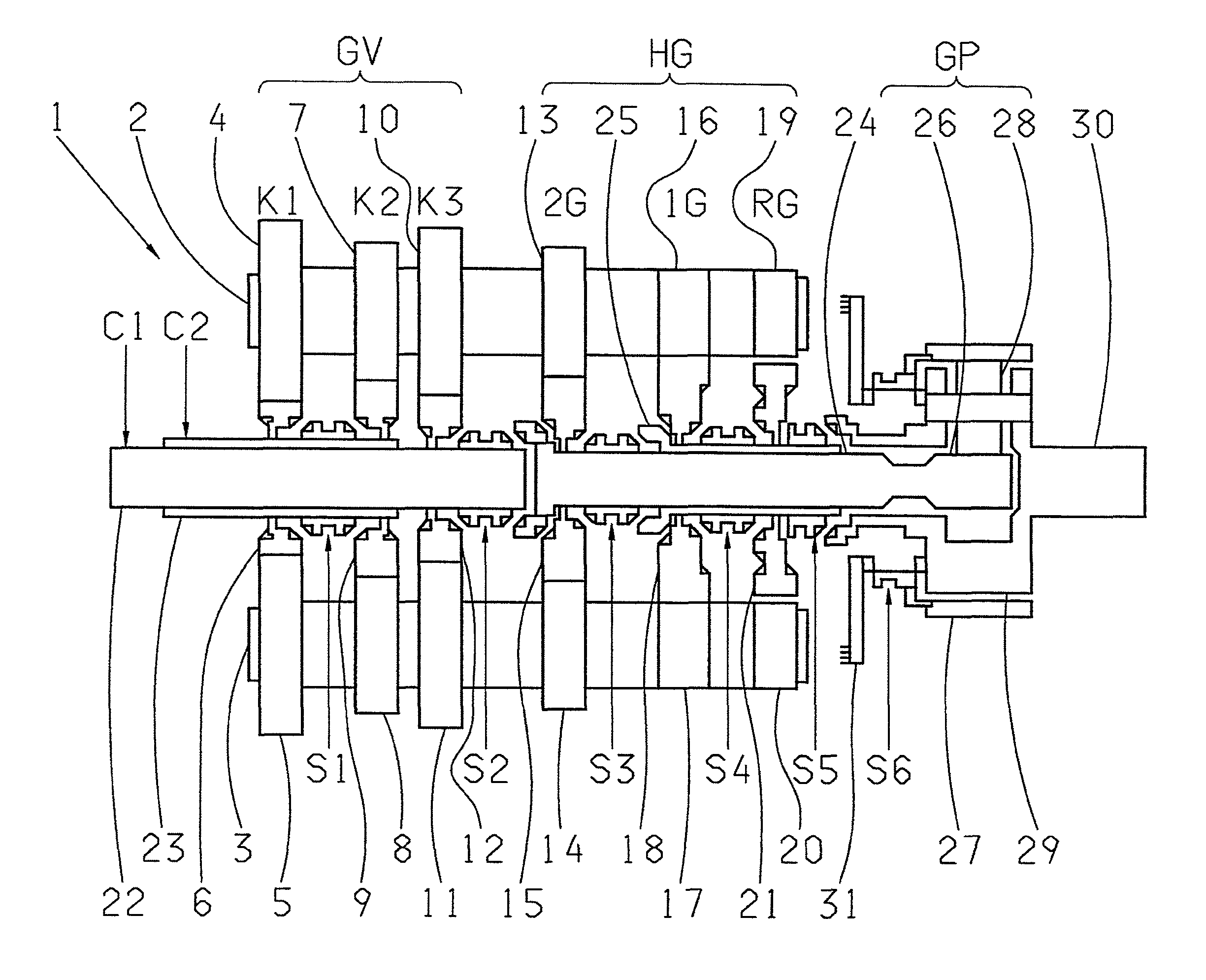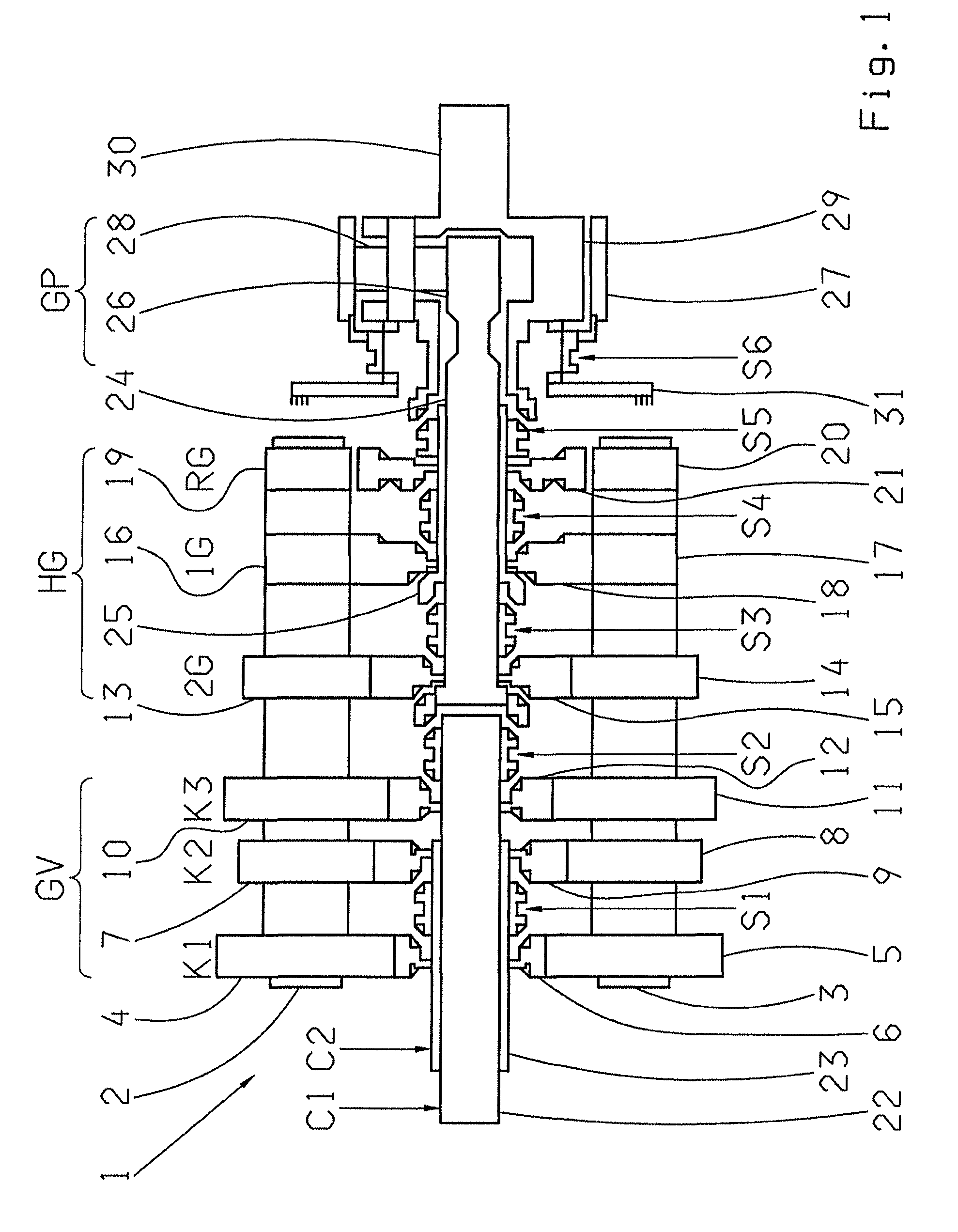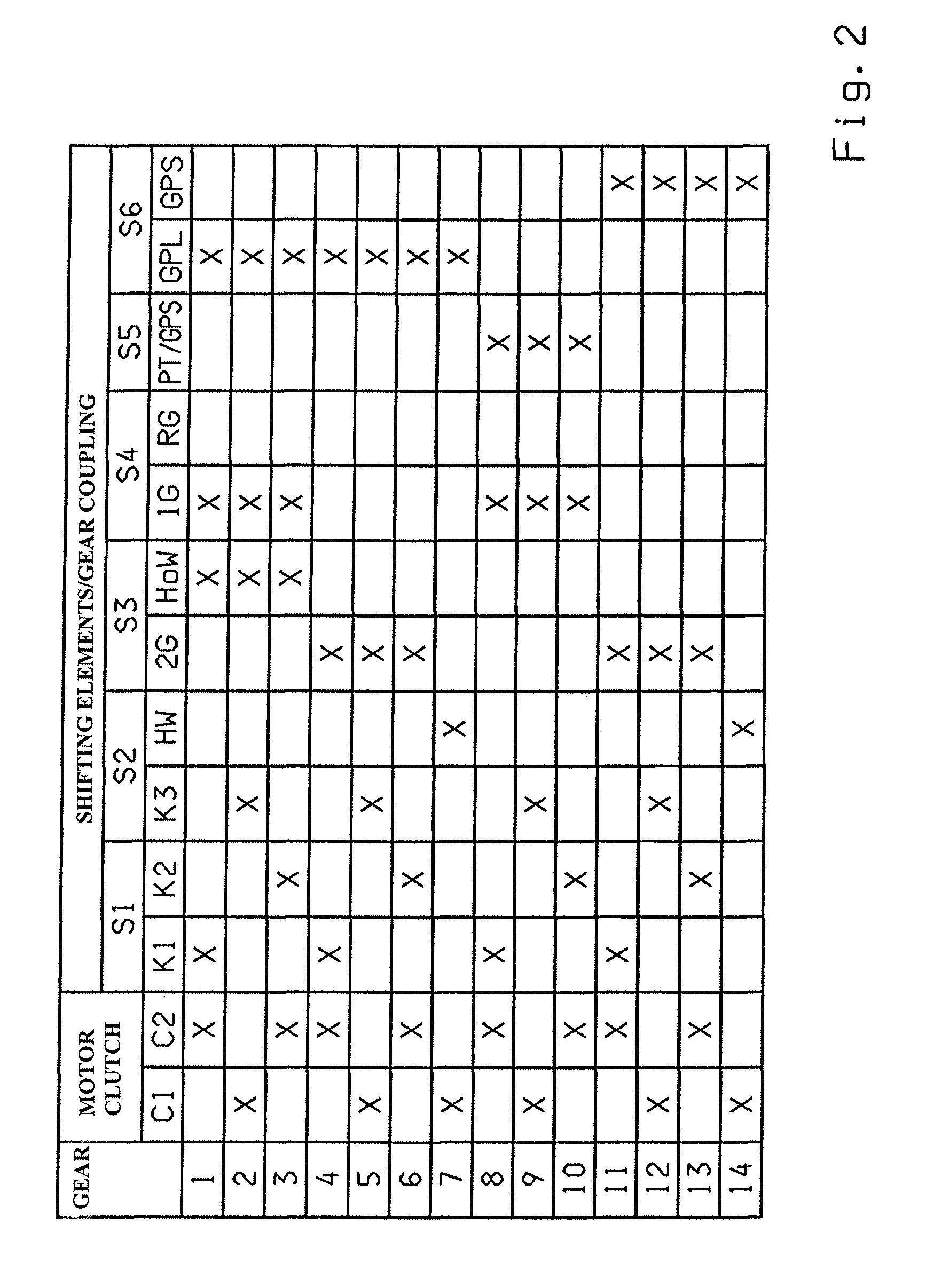Dual-clutch group transmission and method for actuating a dual-clutch group transmission
a transmission and clutch group technology, applied in mechanical equipment, transportation and packaging, gear shifting, etc., can solve the problems of reducing the efficiency of the transmission, the process of the range group itself being as a rule not traction force-supported, and the power-shifting of not all the gears. to achieve the effect of saving weight and shortening the axial length of the transmission
- Summary
- Abstract
- Description
- Claims
- Application Information
AI Technical Summary
Benefits of technology
Problems solved by technology
Method used
Image
Examples
Embodiment Construction
[0031]Accordingly, FIG. 1 is a schematic representation of a first transmission structure 1 of a dual-clutch group transmission as can be provided, for example, for a truck. The transmission structure 1 comprises three transmission groups GV, HG, GP. A splitter group GV on the input side with three input constants K1, K2, K3, a main group HG with a first gear 1G, a second gear 2G and a reverse gear RG, and a range group GP with a lower gear range GPL and an upper gear range GPS are arranged axially one after another.
[0032]The splitter group GV and the main group HG are formed as countershaft transmissions with two common, axis-parallel countershafts 2, 3. The gear constants K1, K2, K3 and the gears 2G, 1G, RG comprise gearsets, each with two fixed wheels 4, 5; 7, 8; 10, 11; 13, 14; 16, 17; 19, 20, which are arranged on the countershafts 2, 3 and each of which engages with a loose wheel 6, 9, 12, 15, 18 and 21 respectively, these being mounted to rotate and engaging with the associat...
PUM
 Login to View More
Login to View More Abstract
Description
Claims
Application Information
 Login to View More
Login to View More - R&D
- Intellectual Property
- Life Sciences
- Materials
- Tech Scout
- Unparalleled Data Quality
- Higher Quality Content
- 60% Fewer Hallucinations
Browse by: Latest US Patents, China's latest patents, Technical Efficacy Thesaurus, Application Domain, Technology Topic, Popular Technical Reports.
© 2025 PatSnap. All rights reserved.Legal|Privacy policy|Modern Slavery Act Transparency Statement|Sitemap|About US| Contact US: help@patsnap.com



